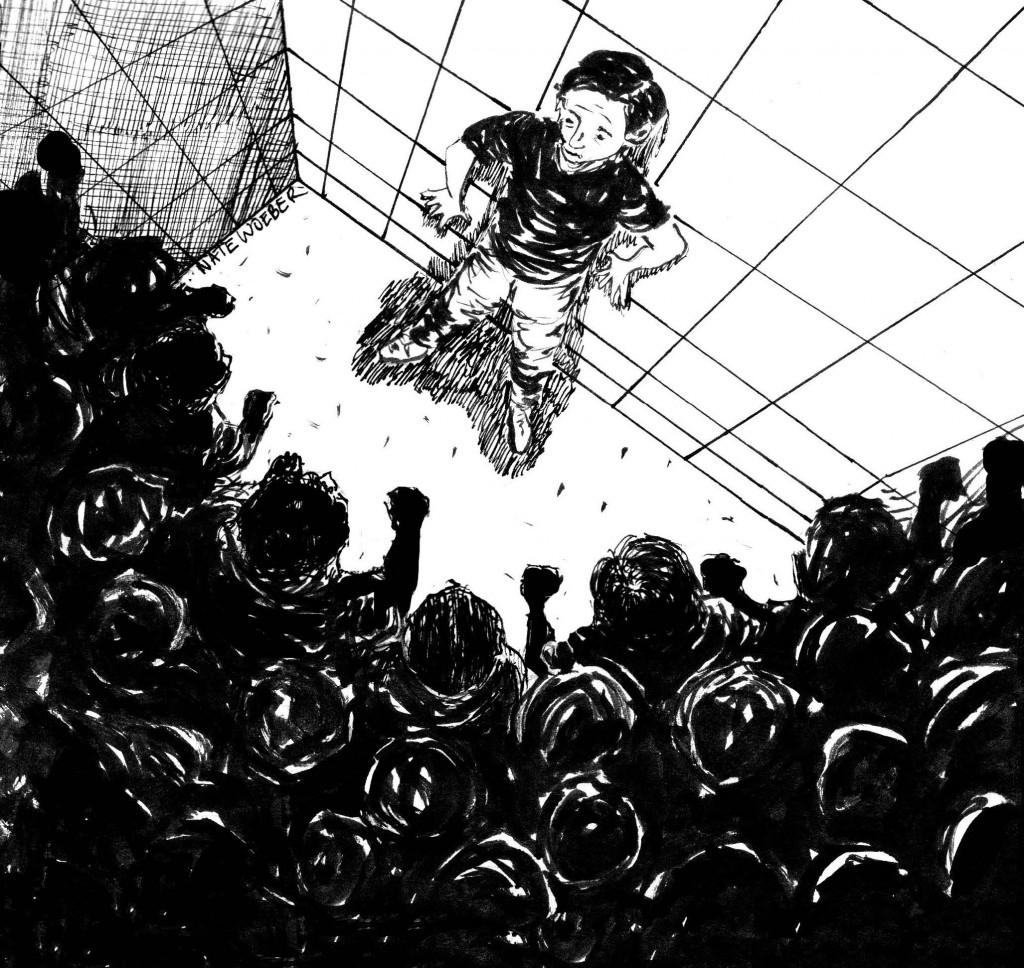By Amy Estrada/reporter
Seventy-four percent of Texans said they would report a domestic violence crime, but only 20 percent indicated they have actually called to report a situation.
Kathy Haecker, crime victims liaison for Hurst-Euless-Bedford police departments, spoke to students about domestic violence Oct. 21 on NW Campus.
“What is family violence?” Haecker asked to begin her presentation.
Students mentioned hitting, pushing, shoving and sexual abuse as family violence.
“Anyone that you have lived with and has beaten you up is considered family violence,” Haecker said.
At the top of a packet Haecker distributed were the words “power and control wheel.”
“We all want power and control,” she said.
The packet, produced and distributed by the National Center on Domestic and Sexual Violence, explained the different forms of domestic violence that can occur in a relationship.
The wheel showed possessiveness, threats and intimidation as signs of what an abuser will do to maintain their power and control over a victim. Haecker said men will use children to post a threat and tell their wives Child Protective Services will take them away if the wives file a police report.
Haecker asked students why victims stay in abusive relationships instead of leaving.
Several in the room responded that some victims might be scared to leave or might feel that love is supposed to be that way.
Haecker said abusers are liars and will tell the victims anything to stop them from pressing charges.
“Most people call this the honeymoon phase,” she said. “I don’t know why. I call it the CYR, cover your rear, so she will drop the charges.”
While in the office, Haecker said she will get many phone calls from women asking how they can remove charges on the men who have abused them.
After receiving the phone calls, Haecker will ask the women if the abuser had been a stranger, would they ask the same thing or would they want the charges to remain.
Haecker explained the different types of abuse filed in a police report: Class C, Class A misdemeanor and felony, which is considered assault with a deadly weapon or strangling the victim and blocking the airway.
“Forty percent of women who had been strangled will experience a stroke,” she said.
Haecker said 1 in 4 women will experience domestic violence, 74 percent of Texans have experienced domestic violence, and from July to September, 909 cases were reported in Tarrant County.
NW student Haley Haskins spoke out about her experience with domestic violence.
Haskins said after her then-boyfriend kicked her out of their apartment, she returned to get some of her mail. He hit her in the back of the head with a beer bottle, beat her up and pushed her down a stairwell.
Haskins said she was scared, but she called 911 before he broke her phone.
When police arrived at the scene, Haskins said her abuser denied he had ever touched her.
Crying, Haskins looked at Haecker and said, “I need help.”
Haecker told her that she wasn’t getting enough help from the police because they weren’t listening as much as they needed to.
After the workshop, Haskins said she felt better and will get the help she needs.
Haecker also had brochures and contact information available for the students to pick up.
NW student Angela Youngblood said she has experienced domestic violence as well.
“I feel better now that I have information on where I can go for help,” she said.


























